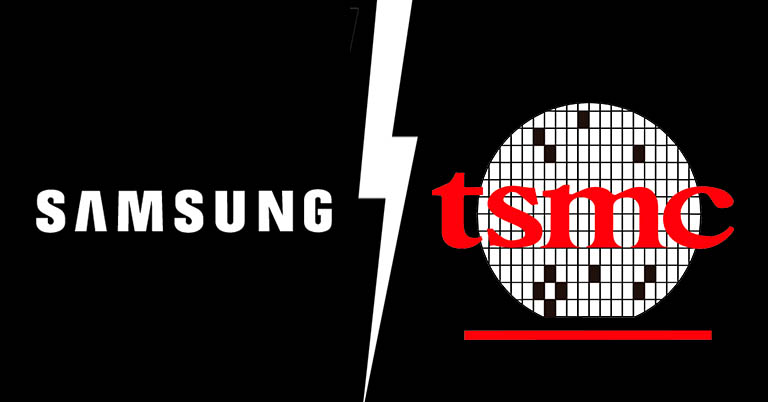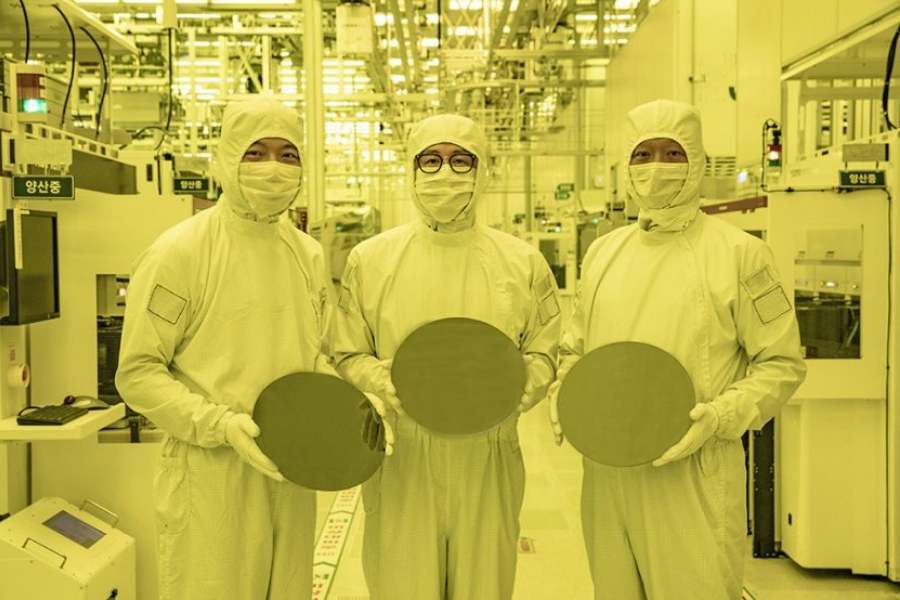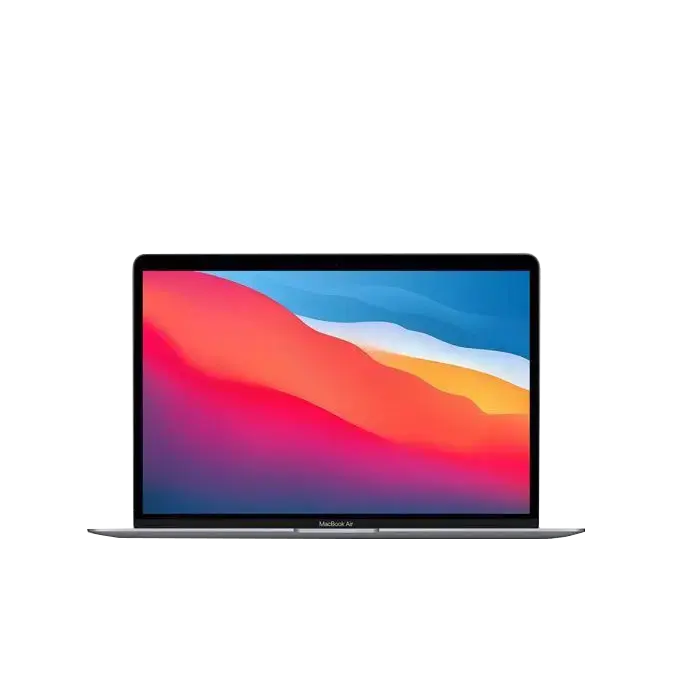
While Samsung Foundry has not been able to catch up to its rival TSMC in terms of manufacturing yield and thermal efficiency for the past couple of generations, it looks like things are about to change with the upcoming 3nm nodes. Let’s learn more.
Samsung vs TSMC 3nm Foundry
As per KMIB News, TSMC is reportedly struggling with 3nm nodes with the yield from the Taiwanese foundry stated to stand at 55%. On the other hand, Samsung is doing quite well with a 60% yield. In case you didn’t know, a foundry’s production yield refers to the number of chips usable from a semiconductor wafer. So a higher yield means higher productivity and better cost efficiency.
TSMC is likely using the N3B node (first generation) but with a FinFET design while Samsung has gone with a newer GAAFET technology. The latter provides a larger drive current, and that could be one of the reasons behind Samsung’s yield gains.

Meanwhile, TSMC and Intel will reportedly use GAAFET tech on their 2nm chips only, which should be arriving by 2025. With Samsung’s 3nm foundry creating some woes for TSMC, AMD is also expected to go with Samsung’s nodes in some sections for its upcoming AI and data center-focused chips. Whereas NVIDIA and Qualcomm are expected to go with Samsung Foundry for their 3nm chips too.
Not over yet for TSMC…
But TSMC’s 3nm business isn’t over just yet as most of its 3nm production capacity has already been booked by Apple for its upcoming chips including M3 and A17 Bionic.
- Also Read:
- Tensor G5 to be Google’s first fully-designed in-house mobile chip
- Apple is experimenting with 3D-printed Titanium components for the Watch Ultra 2
- Redmi 12 with 50MP cameras, Helio G88 launched in Nepal
Samsung vs TSMC 3nm Foundry: What’s next?
Needless to say, the competition is getting fierce in the semiconductor manufacturing world. And Samsung is likely to secure the top spot for its 3nm nodes. But as aforementioned, that doesn’t mean that TSMC is going to lag behind completely. After all, we have plenty of time to see the real-world performance and thermal efficiency of Samsung and TSMC-made 3nm chips.
- Meanwhile, you can check our Xiaomi Pad 6 review
















![Best Ultrabooks To Buy in Nepal 2024 [Updated] Best Ultrabook Laptops in Nepal 2023 - June Update](https://cdn.gadgetbytenepal.com/wp-content/uploads/2023/04/Best-Ultrabook-Laptops-in-Nepal-2023-June-Update.jpg)
![Best Gaming Laptops in Nepal 2024 [Updated] Best Gaming Laptops in Nepal 2023 - June Update](https://cdn.gadgetbytenepal.com/wp-content/uploads/2023/04/Best-Gaming-Laptops-in-Nepal-2023-June-Update.jpg)


![Best Mobile Phones Under Rs. 15,000 in Nepal [Updated] Best Phones Under 15000 in Nepal 2024 Budget Smartphones Cheap Affordable](https://cdn.gadgetbytenepal.com/wp-content/uploads/2024/03/Best-Phones-Under-15000-in-Nepal-2024.jpg)
![Best Mobile Phones Under Rs. 20,000 in Nepal [Updated] Best Mobile Phones Under NPR 20000 in Nepal 2023 Updated Samsung Xiaomi Redmi POCO Realme Narzo Benco](https://cdn.gadgetbytenepal.com/wp-content/uploads/2024/01/Best-Phones-Under-20000-in-Nepal-2024.jpg)
![Best Mobile Phones Under Rs. 30,000 in Nepal [Updated]](https://cdn.gadgetbytenepal.com/wp-content/uploads/2023/12/Best-Phones-Under-30000-in-Nepal-2024.jpg)
![Best Mobile Phones Under Rs. 40,000 in Nepal [Updated] Best Phones Under 40000 in Nepal 2024 Smartphones Mobile Midrange](https://cdn.gadgetbytenepal.com/wp-content/uploads/2024/02/Best-Phones-Under-40000-in-Nepal-2024.jpg)
![Best Mobile Phones Under Rs. 50,000 in Nepal [Updated] Best Phones Under 50000 in Nepal 2024 Smartphones Midrange](https://cdn.gadgetbytenepal.com/wp-content/uploads/2024/02/Best-Phones-Under-50000-in-Nepal-2024.jpg)
![Best Flagship Smartphones To Buy In Nepal [Updated] Best Smartphones in Nepal 2024 Flagship Premium Samsung Apple iPhone Xiaomi OnePlus Honor](https://cdn.gadgetbytenepal.com/wp-content/uploads/2023/09/Best-Smartphones-in-Nepal-2024.jpg)